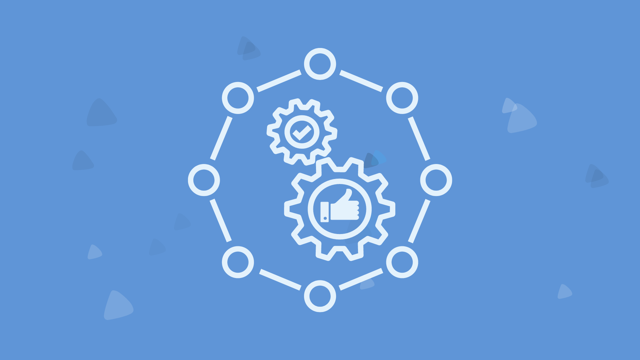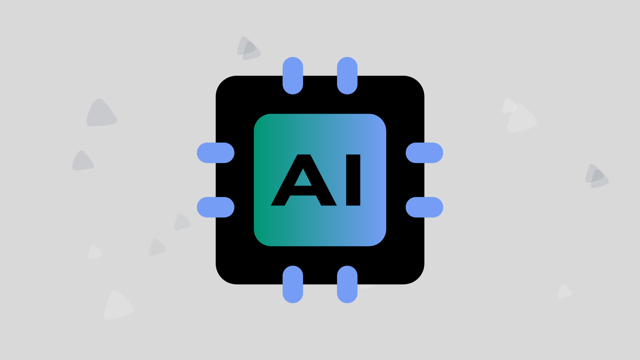Overcoming Common Challenges in Accounts Payable with AI
2024-07-03
How to overcome common challenges in your AP process with AI automation.
Overcoming Common Challenges in Accounts Payable with AI
In today’s rapidly evolving business landscape, the financial sector is no stranger to technological advancements. One area undergoing significant transformation is accounts payable (AP). Traditionally seen as a tedious, time-consuming task, accounts payable is now being revolutionized by artificial intelligence (AI). In this article, we will explore the common challenges faced in accounts payable, how AI is addressing these challenges, and what businesses can do to leverage AI for better efficiency and accuracy.
Understanding Accounts Payable
What is Accounts Payable?
Accounts payable refers to the amount of money a company owes to its suppliers or vendors for goods and services received. This liability is recorded on the company's balance sheet and is an essential part of the business’s financial health. Managing accounts payable involves processing invoices, verifying transaction details, and ensuring timely payments, all of which are critical for maintaining good supplier relationships and avoiding late fees or penalties.
Common Challenges in Accounts Payable
Despite its importance, accounts payable is fraught with challenges that can hinder the efficiency and accuracy of the process. Some of the most common challenges include:
- Manual Data Entry: Entering invoice details manually is not only time-consuming but also prone to errors.
- Invoice Matching: Ensuring that invoices match purchase orders and delivery receipts can be a daunting task.
- Fraud Detection: Identifying fraudulent activities amidst thousands of transactions is a significant challenge.
- Late Payments: Managing payment schedules and avoiding late payments require meticulous tracking.
- Cost Management: Keeping processing costs low while maintaining accuracy is often a balancing act.
How AI is Revolutionizing Accounts Payable
Automating Data Entry
AI-Powered Optical Character Recognition (OCR)
One of the most time-consuming aspects of accounts payable is manual data entry. AI-powered Optical Character Recognition (OCR) technology can scan and extract relevant information from invoices, receipts, and other documents. By converting these documents into machine-readable text, OCR eliminates the need for manual entry, significantly reducing the chances of human error.
For example, a company using AI-driven OCR can process hundreds of invoices in minutes, freeing up staff to focus on more strategic tasks.
Enhancing Invoice Matching
AI Algorithms for Accurate Matching
Matching invoices with purchase orders and delivery receipts is a meticulous task that can lead to delays if not handled efficiently. AI algorithms can automate this process by cross-referencing invoice data with corresponding purchase orders and receipts. These algorithms can identify discrepancies and flag them for review, ensuring accuracy and speeding up the matching process.
By leveraging AI for invoice matching, companies can reduce the time spent on this task by up to 80% and significantly decrease the likelihood of payment errors.
Improving Fraud Detection
Machine Learning for Anomaly Detection
Fraudulent activities in accounts payable can lead to significant financial losses. Machine learning algorithms can analyze historical transaction data to identify patterns and detect anomalies that may indicate fraud. These systems continuously learn from new data, improving their accuracy over time and providing businesses with a robust tool for fraud prevention.
For instance, an AI system can flag unusual invoice amounts or suspicious supplier details, allowing the AP team to investigate further before processing payments.
Streamlining Payment Processes
Automated Payment Scheduling
Managing payment schedules manually can be a logistical nightmare, especially for businesses dealing with numerous suppliers. AI can automate payment scheduling by analyzing due dates, cash flow, and supplier terms. This ensures that payments are made on time, avoiding late fees and maintaining good supplier relationships.
With AI handling payment schedules, businesses can optimize their cash flow management and ensure that all payments are processed accurately and on time.
Leveraging AI for Better Cost Management
Reducing Processing Costs
Efficient Resource Allocation
AI in accounts payable allows businesses to reduce processing costs by automating repetitive tasks. This not only speeds up the process but also enables companies to allocate their resources more efficiently. By reducing the time and effort spent on manual tasks, businesses can focus on more value-added activities, such as strategic financial planning and supplier relationship management.
For example, a company that automates its AP processes can reduce its processing costs by up to 70%, allowing it to invest more in other critical areas.
Enhancing Financial Accuracy
Data-Driven Insights
AI provides businesses with data-driven insights that can enhance financial accuracy. By analyzing large volumes of transaction data, AI can identify trends, forecast future expenses, and provide actionable recommendations. This enables businesses to make informed decisions, improve their financial planning, and avoid costly mistakes.
By leveraging AI for data analysis, companies can achieve higher financial accuracy and gain a competitive edge in their industry.
Ensuring Compliance
Regulatory Compliance Monitoring
Compliance with financial regulations is crucial for any business. AI can monitor transactions in real-time to ensure they adhere to regulatory requirements. It can also generate compliance reports, making it easier for businesses to stay on top of their regulatory obligations and avoid penalties.
With AI monitoring compliance, businesses can rest assured that their transactions are in line with legal requirements, reducing the risk of regulatory breaches.
Implementing AI in Accounts Payable
Steps to Get Started
Assessing Business Needs
The first step in implementing AI in accounts payable is to assess the specific needs of your business. Identify the key challenges you face and determine how AI can address them. This will help you choose the right AI tools and technologies that align with your business objectives.
Choosing the Right AI Solution
There are various AI solutions available for accounts payable, each offering different features and capabilities. Evaluate these solutions based on their functionality, ease of use, and compatibility with your existing systems. Consider factors such as scalability, cost, and vendor support when making your decision.
Training and Onboarding
Implementing AI requires a shift in the way your AP team operates. Provide adequate training to your staff to ensure they understand how to use the new AI tools effectively. This will help them adapt to the changes and maximize the benefits of AI.
Monitoring and Optimization
Once the AI system is in place, continuously monitor its performance to ensure it is meeting your expectations. Gather feedback from your AP team and make necessary adjustments to optimize the system. Regularly update the AI tools to take advantage of new features and improvements.
Overcoming Implementation Challenges
Change Management
Introducing AI in accounts payable can be met with resistance from employees who are accustomed to traditional methods. Effective change management strategies, including clear communication, training, and support, can help ease the transition and ensure a smooth implementation.
Data Quality
The effectiveness of AI depends on the quality of the data it processes. Ensure that your data is accurate, complete, and up-to-date to maximize the benefits of AI. Regular data audits and clean-up processes can help maintain data quality.
Integration with Existing Systems
Integrating AI with your existing accounts payable systems can be a complex task. Work with experienced vendors and IT professionals to ensure seamless integration. This will enable you to leverage AI without disrupting your existing workflows.
Frequently Asked Questions (FAQs)
Conclusion
The integration of AI in accounts payable is revolutionizing the way businesses manage their financial processes. By automating data entry, enhancing invoice matching, improving fraud detection, and streamlining payment processes, AI addresses common challenges and drives efficiency and accuracy. Implementing AI requires careful planning, training, and continuous optimization, but the benefits are well worth the effort.
As businesses continue to evolve, leveraging AI in accounts payable will become increasingly essential. By staying ahead of the curve and adopting AI technologies, companies can not only overcome the challenges of accounts payable but also gain a competitive edge in the market. Embrace the future of finance with AI and transform your accounts payable processes for the better.
Más artículos que podrían interesarte
Digitalización de facturas: Más allá del papel, hacia la eficiencia total - Dost
Digitalización de facturas: optimiza procesos, reduce errores y mejora la eficiencia total de tu empresa. Descubre cómo ir más allá del papel hacia la transformación digital.
2024-07-31 • Eric Alcantud | Marketing @ Dost AI
Subvencionado por el CDTI
Soluciones
Iniciar sesión






